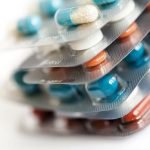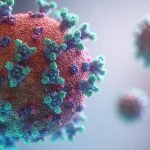This drug combo may treat COVID-19 effectively
Scientists from UCL found new drug combinations with the potential to treat severe cases of COVID-19 infection at different stages of the disease.
The findings...
Eating right for chronic kidney disease
You may need to change what you eat to manage your chronic kidney disease (CKD).
Work with a registered dietitian to develop a meal plan...
40% of COVID-19 survivors suffer from a new disability, study finds
Scientists from Monash University found six months after recovering from COVID-19 critical illness, one in five people had died, and almost 40% of survivors...
ibuprofen combined with these high blood pressure drugs could damage kidneys permanently
Scientists from the University of Waterloo found that anyone who is taking a diuretic and a renin-angiotensin system (RSA) inhibitor for high blood pressure...
This study shows the cause of ‘brain fog’ in COVID-19
One of the dozens of unusual symptoms that have emerged in COVID-19 patients is a condition that’s informally called “COVID brain” or “brain fog.”
It’s...
COVID-19 infection may boost antibodies against common colds
Scientists from Scripps Research found that getting sick with a common cold doesn't make you immune to COVID-19, but a COVID-19 infection might boost...
Scientists find a new way to treat dementia
Scientists from the University of Cambridge found a new mechanism that might help prevent the build-up of tangles of proteins commonly seen in dementia.
The...
Blackcurrants may help lower your blood sugar after a meal
Scientists from the University of Eastern Finland found that blackcurrants have a beneficial effect on post-meal blood sugar response.
The research is published in the British...
COVID-19 can increase anxiety in people with this health problem
Scientists from BC Children's Hospital and elsewhere found the different effects of COVID-19 on anxiety.
They found in those with asthma, the pandemic was linked to...
This study suggests most people may not need second COVID booster
Scientists from Israel’s Sheba Medical Center found that a fourth COVID vaccination or second booster shot may not be necessary for most people because...










